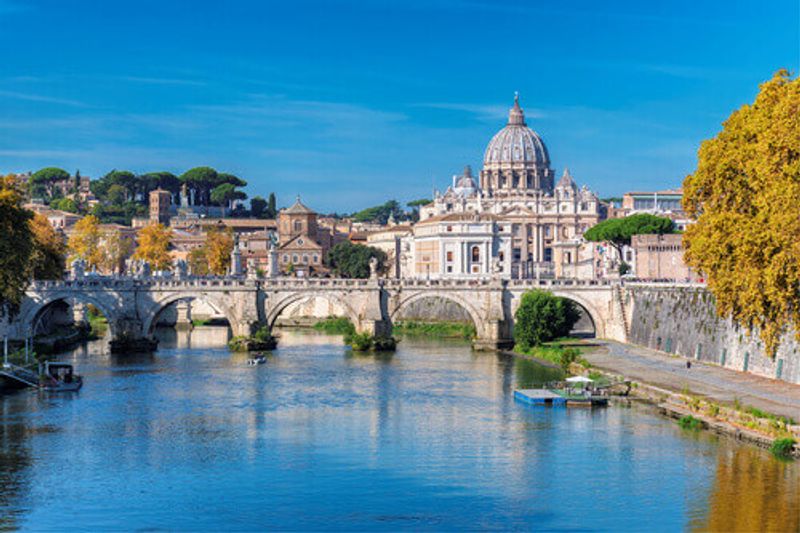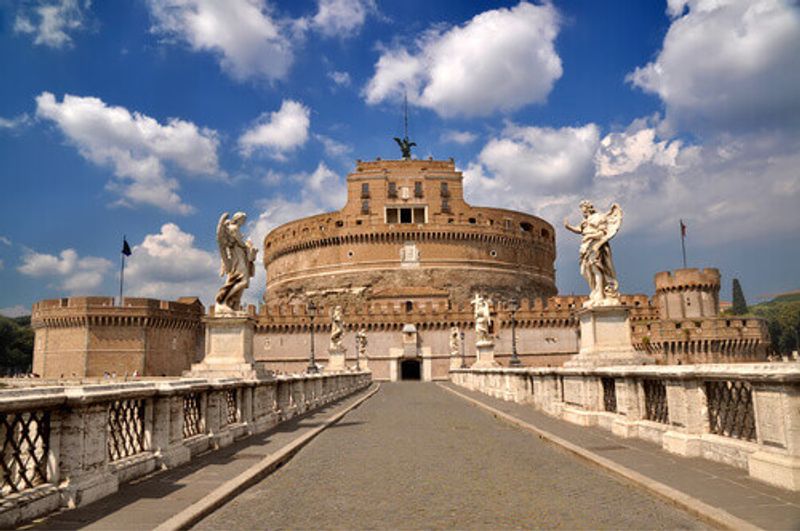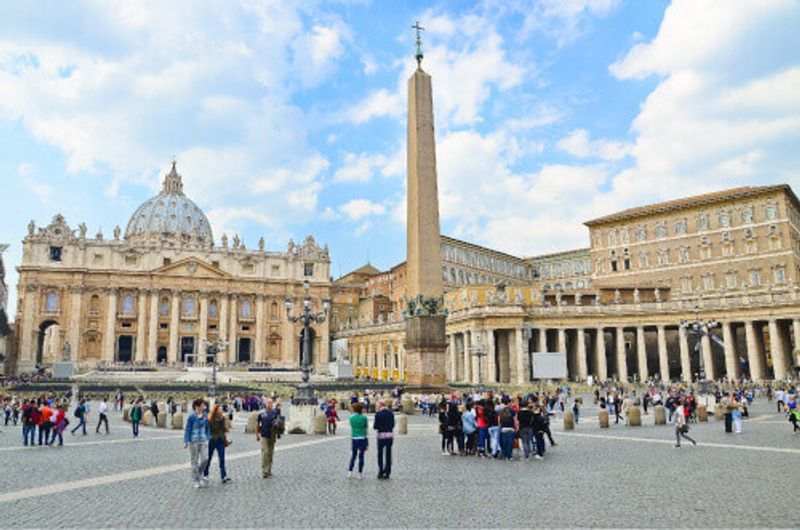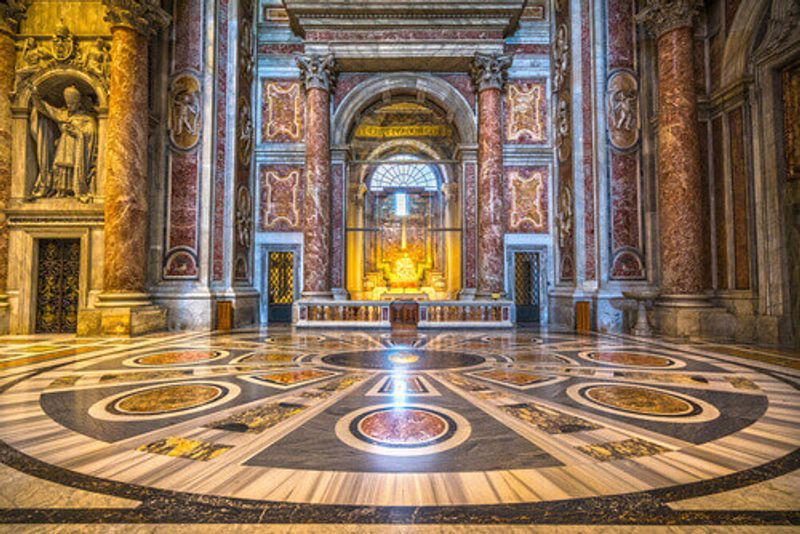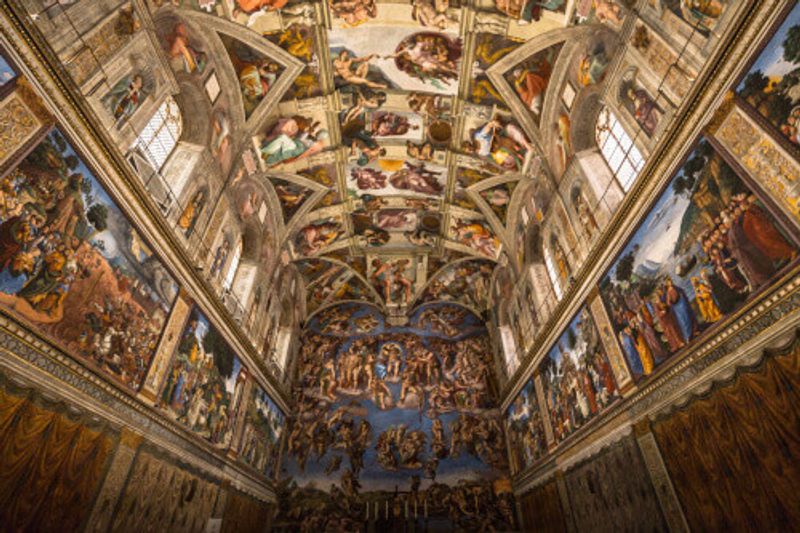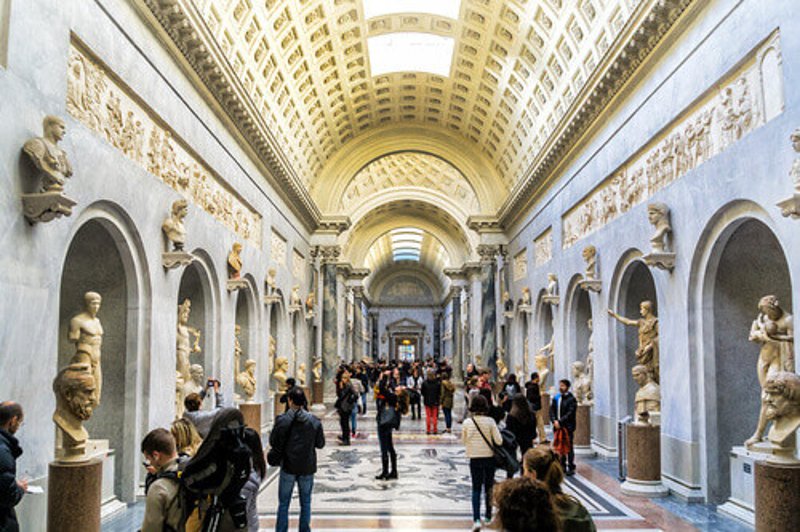Gilded and grandiose, Vatican City offers a surprisingly darker insight into Christendom
The Città del Vaticano is located on Vatican Hill, just west of the Tiber and metropolitan Rome. In Etruscan times this land was a place of worship for the goddess Cybele, the Trojan Mother of Gods, and a symbol of world order. Later, Caligula and Nero built a Circus here; a tool used to keep citizens distracted and compliant. It is interesting then that this sacred space was chosen for another seat of power as the centre of Catholicism.
Start your visit on the west bank of the Tiber. Gaze up at the Castel Sant’Angelo where Emperor Hadrian (the famed builder of walls) was interned in the 2nd-century. The fortified castle stands over a secret passageway used by the Popes to escape the Vatican when insurgency threatened. Follow Via Della Conciliazione and you will arrive in St Peter’s Square.
The Piazza was designed by Bernini in the 17th-century. It is surrounded by over one hundred elevated statues of saints who peer over the square to scrutinise worshippers. In the centre of the square stands a 4,000 year-old Egyptian obelisk, taken from Heliopolis in Egypt by Caligula to decorate his circus.
Looming over the Piazza is St Peter’s Basilica, named for Jesus’ disciple who was crucified in Caligula’s circus and is said to be interned in the catacombs beneath it. This saint is commemorated in a well-loved statue which you should rub for a blessing. The Basilica holds 91 papal tombs but is perhaps more famous for Michelangelo’s sublime sculpture, Pietà. It depicts a forlorn Virgin Mary holding Christ’s body. Michelangelo in large part designed the temple and its dome, and his talent is obvious in the golden mosaics which resemble paintings. For a closer view, brave a tight, steep spiral staircase to the top of the dome.
Turn left after exiting the Basilica and you'll arrive at the Sistine Chapel where new popes are elected. It features wall to ceiling frescoes brought to life by renaissance artists Botticelli, Luca, Perugino and Michelangelo.
Michelangelo’s depiction of the nine stories of Genesis includes the famous Creation of Adam, which shows a serene God reaching out to the First Man. As you move into the apse you will find Michelangelo’s later work including the Final Judgement. Here, you will see Christ surrounded by the strained faces of souls awaiting judgement, and the hellscape below which was inspired by Dante’s Inferno.
The Vatican museums hold an unparalleled collection of art.
Don’t miss the Pio Clementino Museum, which holds the most important Greek works including the Laocoön. This sculptures dates back to first century BCE and depicts a struggle between a Trojan priest and a serpent. The Laocoön holds significance for Romans, who believe that Romulus and Remus were the descendants of a Trojan called Aeneas. This warrior fled Troy at the Laocoön’s behest and arrived in Rome to birth an empire.
Round out your tour of the museums at the 16th-century Gallery of Maps, where beautiful frescos line the passageway, showcasing the regions which would come to make up Italy after unification.
